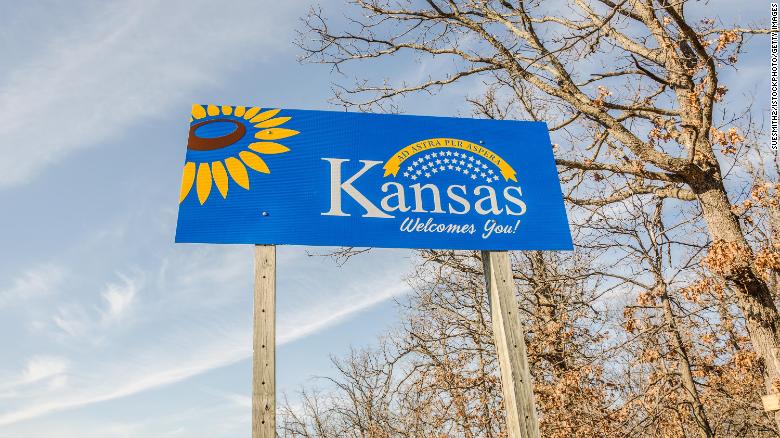The last time Kansas sent a Democrat to the US Senate, the kidnapping of the Lindbergh baby was all over the news. “Tarzan the Ape Man” was a hit movie. And Franklin Delano Roosevelt won his first term, crushing incumbent Herbert Hoover.
The year, as you history majors out there have probably already figured out, was 1932.
That was 88 years ago. And proving that nothing lasts forever, Republican dominance of Kansas’ two Senate seats is in real jeopardy of coming to an end in 33 days’ time. And while Republican Rep. Roger Marshall is still favored to beat state Sen. Barbara Bollier (D) on November 3, the fact that the race is even marginally competitive speaks to how much the state has changed in just the last four years under President Donald Trump.
In 2016, President Donald Trump won Kansas by 21 points, a margin very similar to the 22-point win that Mitt Romney ran up in the Sunflower State four years earlier. (The last Democrat to win Kansas at the presidential level was Lyndon Johnson in 1964.) But the state — led by the increasingly Democratic Kansas City suburbs — has moved away from Trump’s version of tough-talking Republicanism in recent years.
And there are other signs of Democratic movement as well. Rep. Sharice Davids (D), who holds a Kansas City suburban district, appears on a glide path to reelection despite the fact that Trump lost her district by a single point in 2016 (and Romney won it by 10 in 2012). And even in the 2nd district, a GOP stronghold where Trump won by 19 points, non-partisan political handicappers see the possibility of a competitive race.
It’s not just Trump’s underperformance — fueled by his massive underperformance in the suburbs — that has created the possibility of a historic Democratic win. It’s also the fact that the Kansas Republican Party has been at war with itself for the better part of the last two decades — and its establishment and its conservative wings have done each other considerable damage.
In 2018, Gov. Jeff Colyer, an establishment figure who rose to the top posts after Sam Brownback was plucked for a post in the Trump administration, lost a primary to Kris Kobach, a loyal Trump ally and hardline voice on immigration. The party never really healed from that primary, and Kobach proved too extreme for many Kansas voters. Democrat Laura Kelly was elected governor.
Fast forward to 2020, when Kobach ran for the open Senate seat being vacated by Kansas Sen. Pat Roberts (R). Fearing that nominating Kobach would again cost them a seat they should win, elected Republicans, including Roberts and Senate Majority Leader Mitch McConnell (Kentucky), lined up behind Marshall even as a Democratic Super PAC poured money into ads trying to boost Kobach.
Marshall won the August primary comfortably — a victory that, many Republicans (and independent observers) assumed would take the seat out of the danger area for the GOP. It has not turned out that way.
Bollier, a former Republican, has shown significant staying power — fueled by impressive fundraising. Through July 15, Bollier had brought in almost $ 8 million and still had upwards of $ 4 million left to spend. By contrast, Marshall has raised just $ 2.7 million through September 8, with just over $ 1 million left to spend.
And people are noticing. The Cook Political Report, a non-partisan campaign tipsheet, rates the Kansas Senate race as “lean Republican,” the same category that Sens. Kelly Loeffler (R-Georgia) and Lindsey Graham (R-South Carolina) find themselves. Ditto Inside Elections, another handicapping service.
That Kansas is on the list of competitive Senate races speaks to the peril that Trump’s unpopularity — and struggles in the suburbs — has created in the Republican Party broadly and, specifically, its chances of holding onto the Senate majority this fall.
In short: We could be on the verge of witnessing a once-in-a-century moment in Kansas.
>>>>
